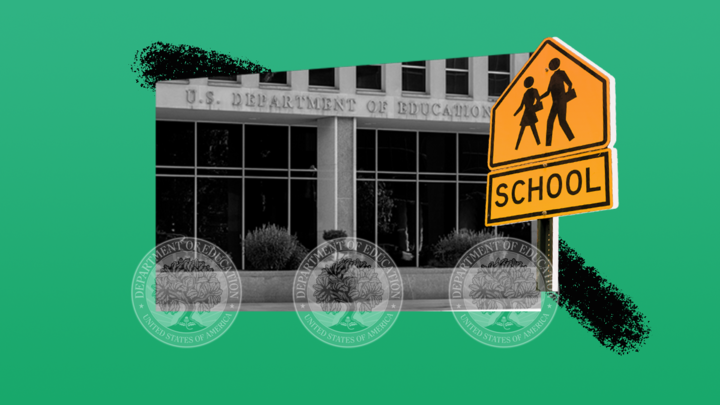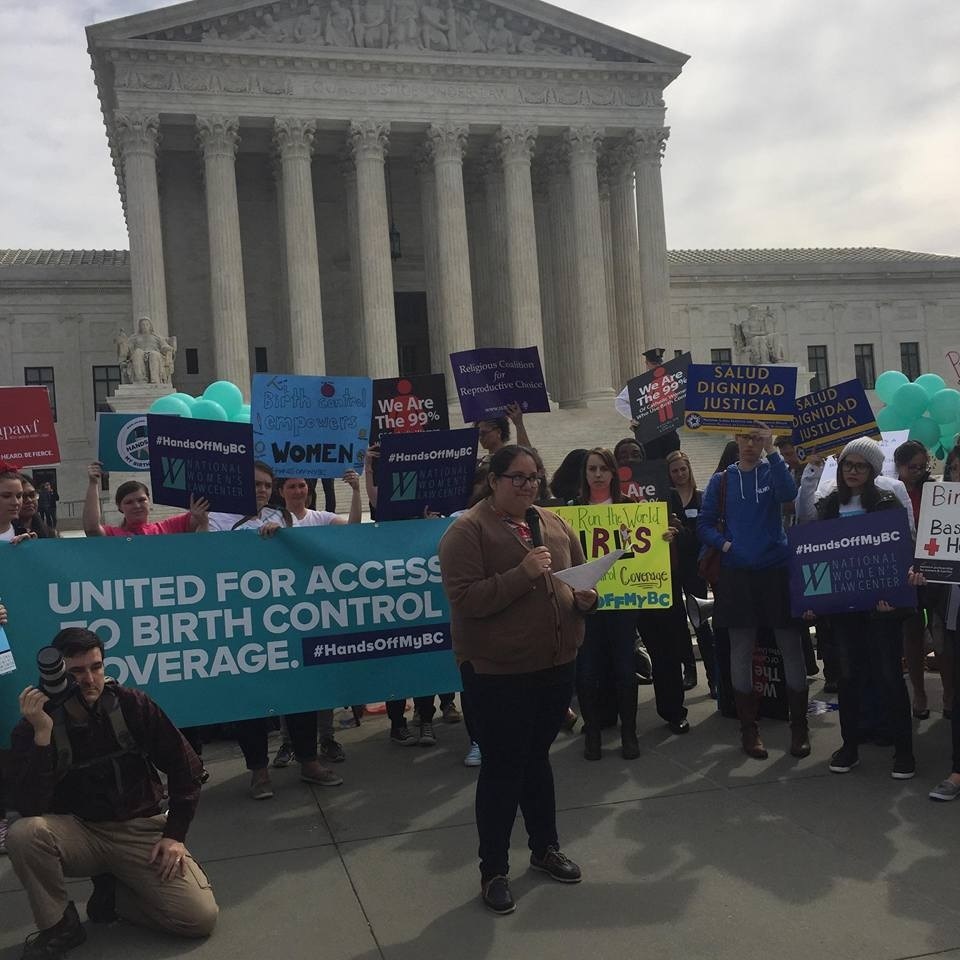Four Ways Biden’s Proposed Title IX Regulations Would Protect Students From Sex Discrimination

The Biden administration’s Department of Education has finally released its long-overdue proposed Title IX regulations! The 701-page proposal addresses sex discrimination, including sex-based harassment, LGBTQI+ students’ rights, and pregnant and parenting students’ rights. Finally, this is a step in the right direction.
If you recall, in 2020 under the Trump administration, Secretary of Education Betsy DeVos issued harmful Title IX regulations that dramatically weakened protections against sexual harassment and expanded religious schools’ ability to discriminate based on sex. As a result, over the last two years, many students who experienced sexual harassment have had their Title IX complaints dismissed by their schools. And survivors whose sexual harassment complaints were not dismissed outright were subjected to uniquely unfair, burdensome, and retraumatizing investigation procedures that are not required for any other type of student or staff misconduct.
Although we sued DeVos and the Trump administration over their Title IX regulations and won a partial victory in 2021, we have repeatedly urged the Biden administration to take swift action to undo and replace the Trump/DeVos regulations with policies that actually protect students.
We are still closely reviewing Biden’s Title IX proposal, but here are four ways students would be better protected if the proposal becomes law:
- Sex discrimination: Biden’s proposal would impose more requirements on schools to address all reports of sex discrimination, including sex-based harassment, anti-LGBTQI+ discrimination, and discrimination against pregnant and parenting students. Schools would be required to offer supportive measures to all students who report sex discrimination to help them learn and feel safe in school. Schools would also have to follow more detailed steps when investigating complaints of sex discrimination, including, with few exceptions, by using an equitable standard of proof.
- Sex-based harassment: Biden’s proposal defines “sex-based harassment” to include sexual harassment, sexual assault, dating violence, domestic violence, and stalking, as well as harassment based on sex stereotypes, sex characteristics (like intersex traits), sexual orientation, gender identity, and pregnancy or related conditions. Under the proposal, schools would be required to address all of these types of sex-based harassment—including incidents that occur off campus and abroad—if the harassment is so severe “or” pervasive that it “limits” a student’s access to education. This would be a much better standard than the current Trump/DeVos regulations, which, among other things, require schools to ignore complaints if the sexual harassment is not considered severe “and” pervasive enough that it “denies” a student’s access to education.
- LGBTQI+ students: The Title IX regulations would explicitly state, for the first time, that “sex discrimination” includes discrimination based on sexual orientation, gender identity, and sex characteristics (like intersex traits). This means schools would be required to allow transgender, nonbinary, and intersex students to participate in school programs and activities consistent with their gender identity. Note: We have to admit, we are disappointed the Department of Education did not explicitly address transgender inclusion in athletics in this proposal, opting instead to issue a separate proposal in the undefined future (likely fall 2022 or later). Trans students—especially trans girls and women—are facing an unprecedented and vicious wave of attacks from states across the country, including bans on their rights to play sports and use restrooms and locker rooms consistent with their gender identity. Given the urgency of this matter, the Biden administration must act quickly to clarify what trans athletes’ rights are under Title IX.
- Pregnant and parenting students: Biden’s proposal would expand regulatory protections for pregnant and parenting students, who make up 2% of all teens age 15 to 19 and 22% of college students. These new protections would come at a crucial time, given the Supreme Court’s recent decision to strike down our constitutional right to abortion and the ongoing attacks on our constitutional right to birth control. Under the proposed regulations, schools would be required to give lactating students a clean, non-bathroom space to breastfeed or express breast milk. The proposal also gives more detailed instructions to schools on ensuring pregnant and parenting students’ equal access to education, including by offering accommodations like a larger desk, elevator access, extensions on assignments, rescheduling of tests, or homebound instruction.
Do you have thoughts about Biden’s proposed Title IX regulations? From now until early September, you can tell the Department of Education what changes you support and what additional Title IX protections you’d like them to provide for students. You can also add your name to our comment letter.
Want to learn more about Biden’s proposed Title IX regulations? Read our more detailed explainer.
And stay tuned here for more updates about the Title IX regulations!




